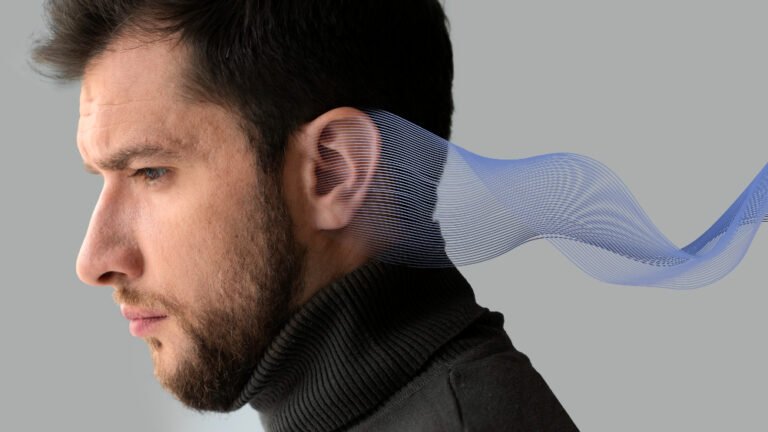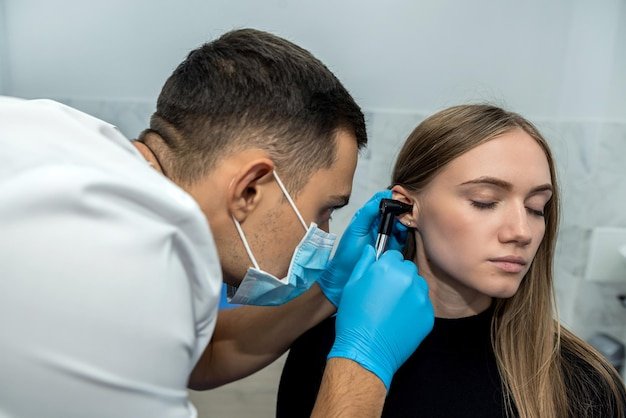Precision in Sound: Exploring Micro Ear Surgery.
Microear surgery represents a remarkable advancement in otologic surgery, offering precise interventions for a range of ear conditions. With the aid of microscopic instruments and innovative techniques, surgeons can address complex ear disorders with unparalleled accuracy and effectiveness. In this article, we delve into the world of micro ear surgery, exploring its applications, benefits, and the transformative impact it has on restoring hearing and improving the quality of life for patients.
To Know More About It Please Click Here
Understanding Micro Ear Surgery
Micro ear surgery, also known as otologic microsurgery, involves the use of specialized instruments and high-powered microscopes to perform delicate procedures within the ear canal and middle ear. These procedures may include tympanoplasty (eardrum repair), ossiculoplasty (middle ear reconstruction), cochlear implantation, stapedectomy (removal of the stapes bone), and mastoidectomy (removal of infected mastoid bone). By magnifying the surgical field and enhancing visualization, micro ear surgery enables surgeons to navigate intricate structures and perform precise maneuvers with utmost precision.
Applications and Indications
Micro ear surgery is indicated for a variety of ear conditions, including chronic otitis media, cholesteatoma (a benign but potentially destructive growth in the middle ear), conductive hearing loss, and sensorineural hearing loss. It is also used in the treatment of congenital ear anomalies, such as malformed or absent ear structures. Additionally, micro ear surgery plays a crucial role in cochlear implantation, a procedure that restores hearing in individuals with severe to profound hearing loss by bypassing damaged or non-functioning hair cells in the cochlea.
Advantages of Micro Ear Surgery
The benefits of micro ear surgery are manifold. By utilizing advanced visualization and precise instrumentation, surgeons can achieve optimal outcomes with minimal trauma to surrounding structures. This minimally invasive approach results in faster recovery times, reduced postoperative pain, and decreased risk of complications compared to traditional open surgery. Additionally, microear surgery offers improved hearing outcomes and preservation of residual hearing, particularly in procedures such as cochlear implantation and stapedectomy.
Technological Innovations
Technological advancements have further enhanced the capabilities of micro ear surgery, leading to improved outcomes and patient satisfaction. High-definition video imaging systems, robotic-assisted surgical platforms, and three-dimensional (3D) printing technology are among the innovations that have revolutionized otologic surgery. These tools enable surgeons to visualize intricate anatomy more clearly, plan procedures with greater precision, and customize surgical approaches to each patient’s unique anatomy, ultimately improving surgical outcomes and patient safety.
Patient-Centered Care
Central to micro ear surgery is a patient-centered approach that emphasizes individualized care and tailored treatment plans. Surgeons work closely with patients to understand their specific needs, preferences, and treatment goals, ensuring that they are fully informed and involved in the decision-making process. Through comprehensive preoperative evaluation, meticulous surgical technique, and attentive postoperative care, micro ear surgery provides patients with the best possible chance of successful outcomes and improved quality of life.
To Know More About It Please Click Here
Conclusion
Micro ear surgery represents a pinnacle of precision and innovation in the field of otologic surgery, offering transformative solutions for a wide range of ear conditions. With its minimally invasive approach, advanced technology, and patient-centered care philosophy, micro ear surgery has revolutionized the treatment of ear disorders, restoring hearing, alleviating symptoms, and improving overall quality of life for countless individuals. As technology continues to evolve and surgical techniques advance, the future holds even greater promise for micro ear surgery, ensuring that patients continue to benefit from the latest advancements in otologic care.








